Garden Maintenance in Southgate: Achieve Your Perfect Outdoor Space
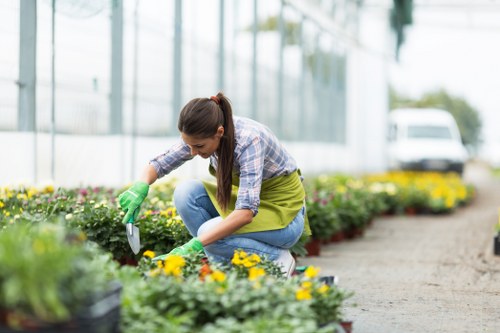
Maintaining a beautiful garden in Southgate requires dedication, knowledge, and the right resources. Whether you're a seasoned gardener or a novice, regular maintenance ensures that your outdoor space remains vibrant, healthy, and inviting throughout the year.
Southgate's unique climate presents both opportunities and challenges for garden enthusiasts. Understanding the local conditions, such as soil type, weather patterns, and native plant species, is crucial for effective garden maintenance.
In this comprehensive guide, we'll explore the essential aspects of garden maintenance in Southgate, offering practical tips and professional strategies to help you nurture your garden into a stunning retreat.
Understanding the Southgate Climate and Its Impact on Your Garden
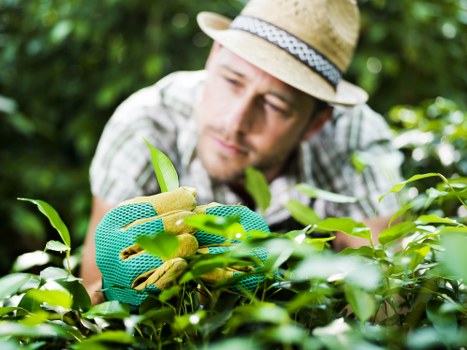
Southgate experiences a temperate climate, characterized by mild winters and warm summers. This climate is ideal for a wide variety of plants, but it also means gardeners must be vigilant against unexpected frosts, heavy rains, and intense sunlight fluctuations.
**Soil quality** is another critical factor in garden maintenance. Southgate's soil ranges from clay to loam, each requiring different care techniques. For instance, clay-heavy soils retain moisture longer, which can lead to root rot if not managed properly.
_Choosing the right plants_ that thrive in Southgate's climate is essential. Native plants are generally more resilient and require less maintenance, making them a popular choice among local gardeners.
Seasonal Garden Maintenance in Southgate
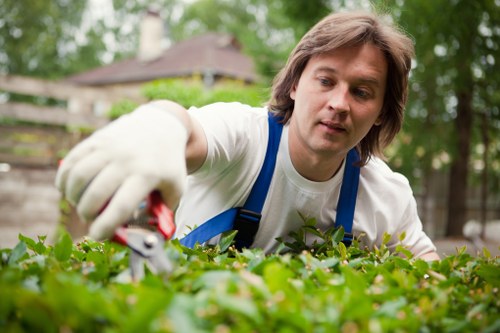
Maintaining your garden throughout the seasons ensures its health and longevity. Each season presents unique tasks that contribute to the overall well-being of your plants.
Spring: As the weather warms, it's time to prepare your garden for the growing season. This includes pruning dead branches, fertilizing the soil, and planting new flowers and shrubs.
Summer: During the hot months, focus on regular watering, weeding, and monitoring for pests. Proper irrigation is crucial to prevent dehydration of plants.
Autumn Care for a Thriving Garden
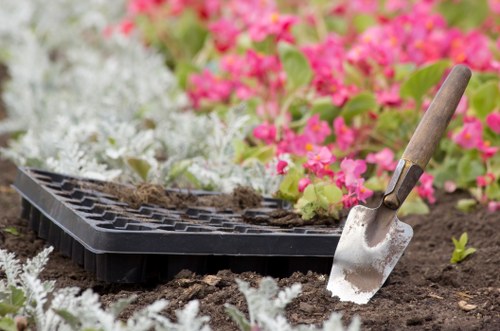
Autumn is a time for preparing your garden for the cooler months ahead. This involves clearing fallen leaves, protecting delicate plants from frost, and planting bulbs for spring blooms.
It's also an excellent period to assess the overall health of your garden. Look for signs of disease or pest infestation and take necessary measures to address these issues before winter sets in.
Mulching is another important task in autumn. Applying a layer of mulch helps retain soil moisture and provides insulation against temperature fluctuations.
Winter Garden Maintenance Tips
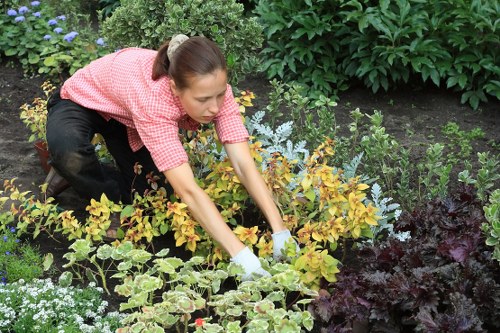
Winter may seem like a dormant period for gardens, but proper maintenance during this time ensures a healthy start in the spring. Protect your plants by covering them with frost blankets and ensure that any irrigation systems are drained to prevent damage from freezing.
Pruning should be minimized during winter, but removing any dead or diseased branches is still essential to maintain plant health.
Consider planning your garden layout for the upcoming year. Winter is a great time to design your garden, select new plants, and order seeds or bulbs.
Essential Services for Garden Maintenance in Southgate

Professional garden maintenance services in Southgate offer a range of solutions tailored to meet the specific needs of your garden. These services ensure that your outdoor space remains well-maintained, healthy, and aesthetically pleasing.
**Lawn Care:** Regular mowing, edging, and fertilizing are essential for maintaining a lush lawn. Professional lawn care services also include aeration and dethatching to promote healthy grass growth.
**Pruning and Trimming:** Proper pruning techniques enhance the shape and health of your plants. Professionals know which branches to remove and how to shape shrubs and trees for optimal growth.
Pest and Disease Management

Preventing and managing pests and diseases is crucial for garden health. Southgate's climate can foster various pests, including aphids, caterpillars, and slugs, which can damage plants.
Integrated Pest Management (IPM) strategies are employed by professionals to control pests effectively while minimizing environmental impact. This approach includes biological controls, habitat manipulation, and the use of resistant plant varieties.
Regular monitoring and early detection are key to managing pest populations and preventing widespread damage to your garden.
Soil and Fertilization Services

Healthy soil is the foundation of a thriving garden. Soil testing services assess the pH levels, nutrient content, and overall quality of your soil, allowing for targeted fertilization and amendment strategies.
**Organic Fertilizers:** Using organic fertilizers enriches the soil without harmful chemicals, promoting sustainable garden practices and healthier plant growth.
**Soil Amendments:** Adding compost, manure, or other soil conditioners improves soil structure, drainage, and fertility, ensuring that your plants receive the nutrients they need.
DIY vs. Professional Garden Maintenance

Deciding between DIY garden maintenance and hiring professionals depends on several factors, including the size of your garden, your expertise, and the time you can dedicate to gardening tasks.
Advantages of DIY:
- Cost-effective
- Personal satisfaction
- Flexible scheduling
Advantages of Professional Services:
- Expert knowledge and experience
- Time-saving
- Access to specialized tools and equipment
When to Consider Hiring a Professional

Hiring a professional garden maintenance service is beneficial when dealing with complex tasks such as major landscaping projects, severe pest infestations, or when you simply lack the time to maintain your garden effectively.
**Expert Troubleshooting:** Professionals can quickly identify and address issues that may be challenging for amateur gardeners to diagnose.
**Customized Maintenance Plans:** Tailored maintenance schedules ensure that your garden receives the attention it needs at the right times, enhancing its overall health and beauty.
Choosing the Right Garden Maintenance Service in Southgate

Selecting a reliable garden maintenance service is essential for achieving the desired results. Here are some factors to consider when choosing a provider in Southgate:
- Experience and Expertise: Ensure the service has a proven track record and knowledgeable staff.
- Range of Services: Choose a provider that offers comprehensive services tailored to your garden's specific needs.
- Customer Reviews: Positive feedback from previous clients indicates reliability and quality of work.
- Pricing: Compare quotes to ensure you receive value for your investment without compromising on quality.
Questions to Ask Potential Service Providers

Before finalizing your choice, ask the following questions to potential garden maintenance services:
- What is your experience with gardens similar to mine?
- What services are included in your maintenance packages?
- Do you offer customized maintenance plans?
- How do you handle pest and disease control?
- What are your pricing structures and payment options?
Clear communication and understanding of expectations are vital to a successful partnership with your garden maintenance provider.
Tips for Maintaining Your Garden Between Professional Visits

Even with professional maintenance, there are several tasks you can perform to keep your garden in top shape between visits:
- Regular Watering: Ensure your plants receive adequate water, especially during dry spells.
- Weeding: Remove weeds promptly to prevent them from competing with your plants for nutrients.
- Pruning: Trim overgrown branches and remove dead foliage to encourage healthy growth.
- Mulching: Apply mulch to retain soil moisture and suppress weed growth.
- Monitoring Plant Health: Keep an eye out for signs of pests or diseases and address them early.
By performing these routine tasks, you enhance the effectiveness of professional maintenance services and contribute to the overall health of your garden.
Implementing Sustainable Gardening Practices

Sustainable gardening not only benefits the environment but also promotes a healthier garden. Here are some practices to consider:
- Composting: Recycle kitchen scraps and garden waste to create nutrient-rich compost.
- Rainwater Harvesting: Collect rainwater for irrigation to reduce water usage.
- Native Plants: Incorporate native species that require less water and are more resistant to local pests and diseases.
- Organic Fertilizers: Use natural fertilizers to enrich the soil without harmful chemicals.
- Integrated Pest Management: Employ eco-friendly pest control methods to maintain a balanced ecosystem.
Adopting these practices leads to a more resilient and eco-friendly garden, aligning with modern environmental values.
Enhancing Your Garden's Aesthetics

Aesthetics play a significant role in the appeal of your garden. Here are some design elements to consider:
- Plant Variety: Choose a mix of flowering plants, shrubs, and trees to create visual interest and diversity.
- Color Coordination: Select plants with complementary colors to create a harmonious look.
- Garden Structures: Incorporate elements like pergolas, benches, and pathways to add structure and functionality.
- Lighting: Use garden lighting to highlight key features and extend the usability of your outdoor space into the evening.
- Water Features: Adding fountains or ponds can enhance the tranquility and beauty of your garden.
Thoughtful design choices transform your garden into a personalized oasis that reflects your style and preferences.
Maintaining Garden Structures and Features

Garden structures such as pergolas, gazebos, and decks require regular maintenance to ensure their longevity and safety. Here are some maintenance tips:
- Cleaning: Remove dirt, debris, and plant matter that can accumulate on structures.
- Repairs: Address any signs of wear and tear promptly to prevent further damage.
- Sealing and Painting: Protect wooden structures from moisture and pests by applying sealants and fresh coats of paint.
- Inspection: Regularly inspect the stability and integrity of all garden features.
Proper maintenance of garden structures enhances their appearance and ensures they remain functional and safe for use.
Improving Soil Health for a Thriving Garden

Healthy soil is essential for the growth and vitality of your plants. Here are some strategies to improve and maintain soil health:
- Soil Testing: Regularly test your soil to determine its pH level and nutrient content.
- Amendments: Add organic matter like compost or manure to enhance soil fertility and structure.
- Crop Rotation: Rotate different plant families each season to prevent soil depletion and reduce pest and disease buildup.
- Cover Crops: Plant cover crops to prevent soil erosion, suppress weeds, and add nutrients back into the soil.
- Aeration: Aerate compacted soil to improve water infiltration and root growth.
Implementing these practices ensures that your soil remains rich and conducive to healthy plant growth.
Water Management Strategies

Effective water management is crucial for a sustainable and healthy garden. Consider the following strategies:
- Efficient Irrigation Systems: Install drip irrigation or soaker hoses to deliver water directly to the plant roots, reducing waste.
- Rain Barrels: Collect rainwater to use during dry periods, conserving water and reducing your utility bills.
- Water-Wise Plants: Select plants that are adapted to your local climate and require less water.
- Mulching: Apply mulch to retain soil moisture and minimize evaporation.
- Timing: Water your garden early in the morning or late in the evening to reduce water loss due to evaporation.
These water management techniques promote a sustainable garden that thrives while conserving valuable resources.
Integrating Technology into Garden Maintenance

Modern technology offers innovative solutions for garden maintenance, making it easier to care for your outdoor space efficiently. Here are some tech tools to consider:
- Smart Irrigation Systems: Automate watering schedules based on weather conditions and soil moisture levels.
- Garden Management Apps: Use apps to track plant growth, schedule maintenance tasks, and receive gardening tips.
- Robotic Lawn Mowers: Maintain your lawn effortlessly with automated mowing systems.
- Soil Sensors: Monitor soil health indicators in real-time to make informed maintenance decisions.
- Drones: Utilize drones for large gardens to inspect plant health and monitor for pests.
Incorporating technology into your garden maintenance routine enhances efficiency and allows for more precise care.
Benefits of Using Technology in Your Garden

Adopting technological solutions in your garden maintenance offers numerous advantages:
- Time-Saving: Automation reduces the time spent on manual tasks, freeing you up to enjoy your garden.
- Precision: Technology provides accurate data, helping you make informed decisions about plant care.
- Resource Efficiency: Smart systems optimize water and nutrient usage, promoting sustainability.
- Enhanced Monitoring: Advanced tools allow for real-time monitoring of plant health and soil conditions.
- Convenience: Integrated systems streamline maintenance tasks, making gardening more enjoyable.
Leveraging technology leads to a more efficient, sustainable, and enjoyable gardening experience.
Final Thoughts on Garden Maintenance in Southgate

Effective garden maintenance in Southgate is a blend of knowledge, effort, and the right resources. By understanding the local climate, implementing seasonal care routines, and utilizing professional services when needed, you can cultivate a garden that not only looks stunning but also thrives year-round.
Remember, a well-maintained garden is a sanctuary that enhances your property's beauty and provides a peaceful retreat from the hustle and bustle of daily life.
Ready to transform your garden? Contact us today to book your professional garden maintenance service and take the first step towards your dream outdoor space.